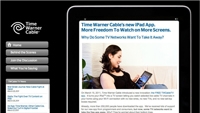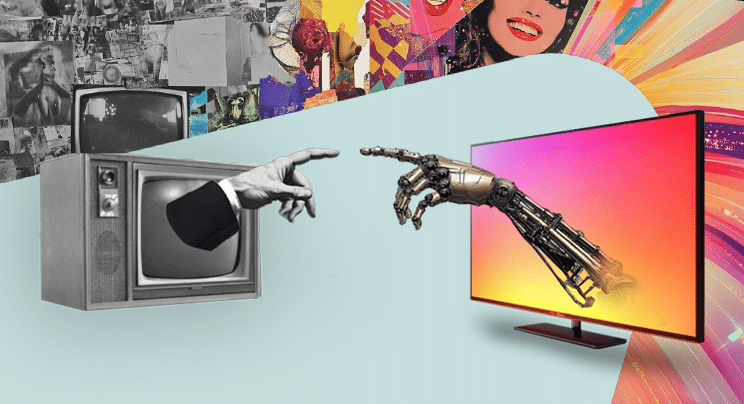Streaming rights to Apple iPad opens rift between cable, content owners

Do the contracts that cable operators have with content owners allow them to deliver programming to Apple’s iPad viewing tablet? That’s the dispute that has now broken out with Time Warner Cable as the operator rolls out a new iPad viewing application.
Content owners Viacom and Scripps Networks call iPad streaming a contract violation and want to be paid more by the cable operators for their programming when sent to iPads. They are already threatening to sue.
Last week, Time Warner Cable began an advertising campaign on the Internet that promoted “more freedom to watch on more screens” and posed the question, “Why do some TV networks want to take it away?”
Apple iPads are becoming increasingly popular, and owners are using the tablet to watch TV over the Internet. The key question is whose app they will use. It could be one from a cable company, an individual channel or through a service like Netflix.
Not willing to wait, Time Warner Cable is offering its own app. After installing the app, customers must log in to verify their account, and then choose from a selection of live channels, including CNN and Comedy Central. However, the app is limited, in that it only works inside the home for 32 channels and can be used only by customers who receive both TV and Internet from Time Warner. A similar app from Cablevision is imminent. That app will go further than Time Warner’s and move all its channels and VOD to the iPad, allowing complete viewing of Cablevision content.
“Portability is a different business proposition,” an executive at one of the major channel owners told The New York Times. He suggested that a premium should be paid for the ability to take a TV show into bed or the bathtub. He suggested that Time Warner Cable should have “worked out the business issues” with channel owners before coming out with the app.
Melinda Witmer, an executive vice president at Time Warner Cable, told the Times last week that the current dispute is “fundamentally about money and leverage,” not about the language of contracts. “I already bought these rights,” she said.
The professional video industry's #1 source for news, trends and product and tech information. Sign up below.
In another interview with The Wall Street Journal, Witmer said her company is “well within our rights” to transmit TV channels to any device in the home, as long as it sends signals through its cables and it’s a “secure network,” rather than the “open Internet.” For that reason, the app is specifically configured to work only when linked to a subscriber’s home Internet connection.
Verizon and Comcast have said they are also working on streaming apps for iPads. Comcast is the nation’s largest cable company; Time Warner Cable is the second largest. The cable operators are rushing to offer video on these Internet devices in a concept called “authentication” or “TV everywhere” in an attempt to broaden cable viewing to mobile devices and slow the rate of Internet users who are cutting the cord in favor of lower-cost, Internet-based TV.
